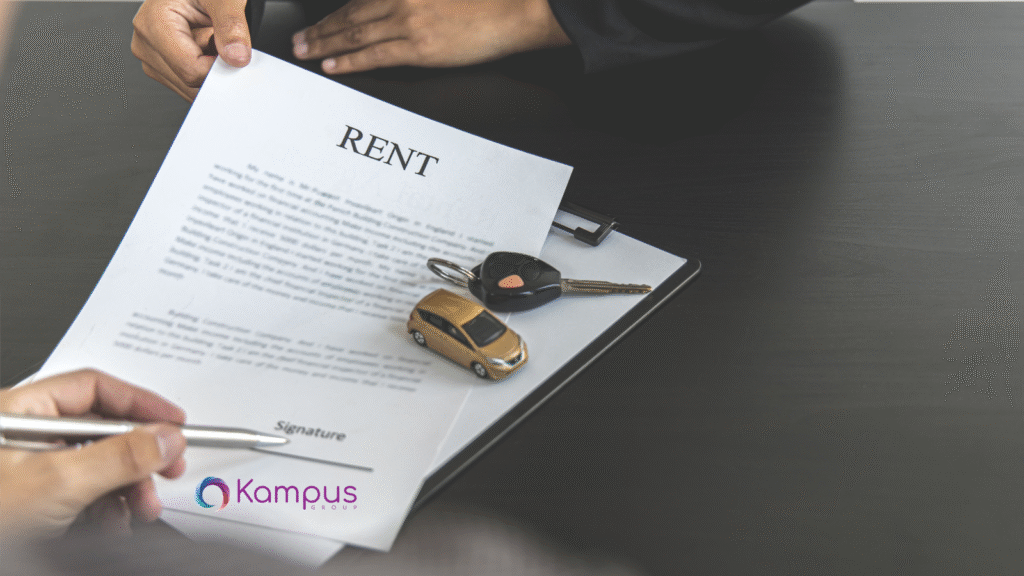Finding the right accommodation abroad is one of the most exciting yet challenging parts of studying overseas. While living independently gives you freedom, it also comes with the responsibility of making safe and smart choices. As an international student, knowing how to rent an apartment safely can save you from scams, high costs, or housing stress.
Here’s a complete guide to help you find the perfect place to live safely and confidently.
1. Start Your Search Early
Don’t wait until the last minute to find accommodation. Begin your search as soon as you receive your offer letter. Many universities abroad offer student housing portals or partnerships with trusted landlords. Early planning helps you avoid desperation, which scammers often exploit.
Check if your university has an accommodation office or Facebook group for verified listings. This is a good starting point for trusted rentals.
2. Use Verified Websites and University Resources
Always use trusted rental websites or university accommodation listings. Avoid random social media ads or suspicious offers that sound too good to be true.
Safe platforms include:
- UK: Rightmove, SpareRoom, Student.com
- USA: Zillow, Apartments.com, CollegeRentals
- Canada: Kijiji, RentSeeker.ca
- Australia: Domain, Flatmates.com.au
If possible, cross-check property listings with your university’s accommodation office before making any payment.
3. Beware of Scams and Unrealistic Deals
Scammers often target new international students who are unfamiliar with local rental processes. Be cautious of:
- Landlords who ask for full payment upfront without showing the property.
- No physical address or fake photos.
- Listings that offer luxury spaces at very low prices.
If the rent seems too good to be true, it probably is.
4. View the Property (Virtually or In Person)
Before signing a contract, inspect the property either in person or through a live video call. Never rely solely on photos. During your viewing:
- Check that all amenities (heating, water, Wi-Fi) are functional.
- Ask about safety features like smoke alarms and locks.
- Take note of the neighborhood, accessibility, lighting, and public transport.
5. Read the Contract Carefully
Your rental agreement is a legal document, so take your time to review it. Make sure it clearly states:
- Rent amount and payment schedule
- Duration of the lease
- Security deposit terms
- Rules for termination or refund
If you don’t understand any clause, ask your university housing advisor or an experienced student for help before signing.
6. Avoid Cash Payments
Always make rent and deposit payments through traceable methods like bank transfers. Request a receipt or confirmation email for every transaction. Avoid paying in cash, as it leaves no proof in case of disputes.
7. Know Your Tenant Rights
Every country has housing laws protecting tenants. Understanding your tenant rights helps you avoid exploitation or unfair eviction.
For instance:
- In the UK, landlords must protect your deposit in a government scheme.
- In Canada, tenants have the right to written notice before eviction.
- In Australia, landlords must provide a condition report at the start of tenancy.
Take some time to read the housing rules in your host country before you move in.
8. Consider Temporary Accommodation First
If you’re moving abroad for the first time, book temporary accommodation for your first week or two. This gives you time to explore different neighborhoods and visit potential apartments in person before making a long-term decision.
Popular short-term options include:
- University halls
- Hostels or Airbnb
- Homestays
If you plan to share your apartment, create a roommate agreement. It helps avoid conflicts about bills, chores, or rent sharing later on.
Renting abroad can feel overwhelming at first, but with the right precautions, you can find a safe and comfortable home. Always research, verify, and never rush into payments. Your peace of mind and safety are worth far more than a “cheap deal.”
FAQs
Q1. Should I pay rent before seeing the apartment?
No. Never make full payments before viewing the property in person or through a verified virtual tour.
Q2. How can I verify if a landlord is legitimate?
Ask for official ID, tenancy registration proof, or check if the property is listed on your university’s housing portal.
Q3. Can international students rent apartments off-campus easily?
Yes. Most landlords welcome international students as tenants, especially if you provide proper documents like your student visa, offer letter, and financial proof.
Q4. What should I do if I suspect a rental scam?
Report it immediately to local authorities and your university housing support. Avoid engaging further with the scammer.
Q5. Is it better to live on-campus or off-campus?
On-campus housing is usually safer and more convenient for first-year students, while off-campus apartments offer more privacy and independence.

